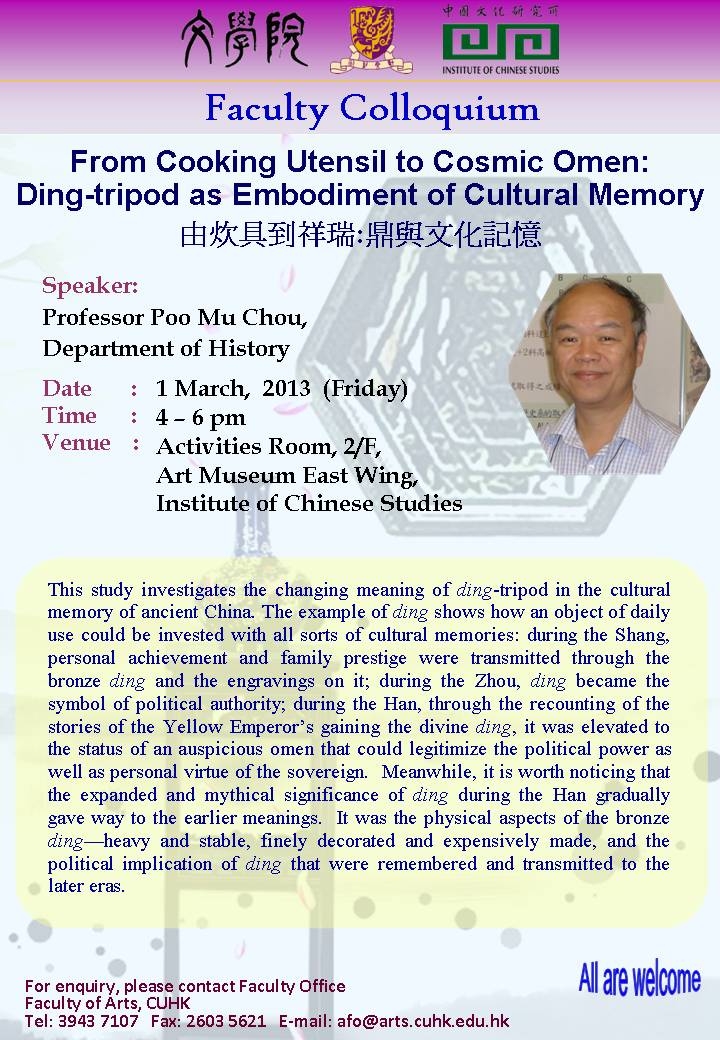活動
由炊具到祥瑞:鼎與文化記憶
2013年3月1日
下午四時至六時
中國文化研究所文物館東翼二樓活動室
蒲慕州教授歷史系
電話: 39437107
This study investigates the changing meaning of ding-tripod in the cultural memory of ancient China. The example of ding shows how an object of daily use could be invested with all sorts of cultural memories: during the Shang, personal achievement and family prestige were transmitted through the bronze ding and the engravings on it; during the Zhou, ding became the symbol of political authority; during the Han, through the recounting of the stories of the Yellow Emperor’s gaining the divine ding, it was elevated to the status of an auspicious omen that could legitimize the political power as well as personal virtue of the sovereign. Meanwhile, it is worth noticing that the expanded and mythical significance of ding during the Han gradually gave way to the earlier meanings. It was the physical aspects of the bronze ding—heavy and stable, finely decorated and expensively made, and the political implication of ding that were remembered and transmitted to the later eras.


